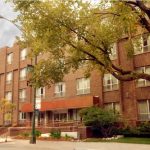Here are some important things senior housing/healthcare borrowers should keep in mind when applying for popular HUD financing programs.
“It’s important that borrowers be prepared to thoroughly explain their business plans and motives. The need lenders have for information can appear to be insatiable at times,” says Cambridge Realty Capital Companies Managing Director Sampada D’silva.
She says the last thing borrowers want to hear is that their lender will need even more descriptive information and data than has already been provided.
Cambridge is one of the nation’s leading senior housing/healthcare lenders, with more than $5.5 billion in closed transactions over the past 20 years. The company has consistently ranked among the top FHA-approved HUD lenders in the country.
Ms. D’silva notes that popular HUD 232 financing has emerged as the long-term funding product of choice for many senior housing/healthcare borrowers. With these loans there is effectively a two-tiered underwriting process – by the FHA-approved HUD lender initially and later by HUD during the application approval process.
For the lender, the primary underwriting concerns are the historical cash flow of a facility and the facility’s occupancy. Typically, 12 months of trailing financials are needed. And occupancy must be at acceptable standards defined by HUD, she said.
Up until the time the application is submitted, financial and occupancy data must be monitored and updated. The most recent trailing 12 months numbers are needed to support the loan request.
Ms. D’silva says a debt service coverage ratio for the property must be met. There should be an upward trend for these numbers and for occupancy as well.
To guide borrowers, Cambridge provides a checklist of documents needed by underwriters on its corporate website.




